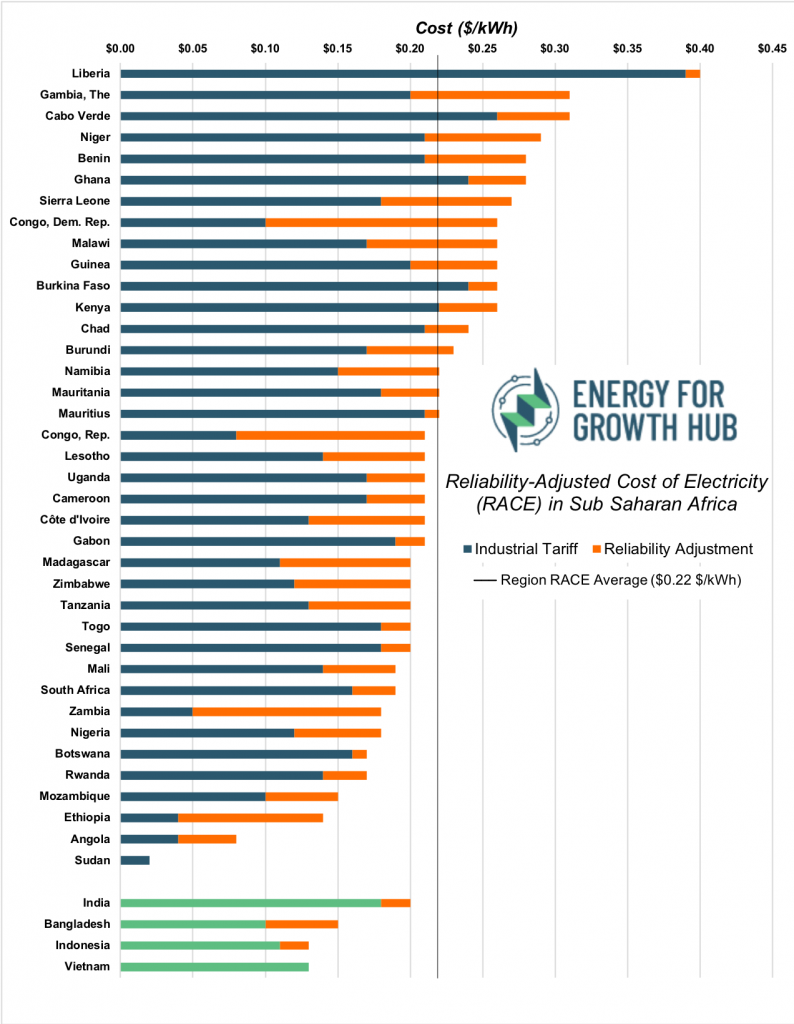Last fall, the Energy for Growth Hub proposed a new metric, reliability-adjusted cost of electricity or RACE, to estimate the effective cost paid by firms for reliable electricity. Today, we are releasing the pilot RACE database, covering 119 countries.
What is RACE? The most widely used metrics for tracking energy progress don’t capture the full picture of how power systems interact with the wider economy. The household access rate is irrelevant for firms. The tariff rate may be irrelevant if companies have to rely heavily on backup generators. RACE puts base industrial tariffs together with weighted estimates of backup costs together to give a clearer picture of what firms really pay.
Why does it matter? The cost and reliability of electricity remains a leading constraint on commercial and industrial firms, especially in a highly competitive global marketplace. Firms may benefit when governments artificially force down headline tariffs, but they also bear the costs of unreliability, which can greatly impact the true cost of power.
What the data tells us.
- While tariff rates are highly variable, Sub-Saharan Africa, the Middle East, and South Asia have significantly worse reliability than other regions.
- To compensate for outages, firms in Sub-Saharan Africa pay on average $0.06/kWh more than the utility tariff rate would suggest, an increase of over 33%.
- In practice, firms in the region pay an average of $0.22/kWh for reliable electricity, nearly twice that of the United States and Europe, and higher than any other region in the world.
So what? With comparative RACE data, we can:
- Better understand and quantify the barriers facing firms around the world.
- Highlight how damaging unreliable power systems are for countries hoping to industrialize and compete.
- Help countries set benchmarks and goals for both lowering energy costs and improving reliability.
- Track a metric closely aligned with employment and other long-term development objectives.
The bottom line: In order to properly reach ambitious global goals such as SDG7 for “access to affordable, reliable, sustainable and modern energy for all,” we need to track metrics that encompass these ideals. Our pilot RACE data helps to partially fill this gap.



